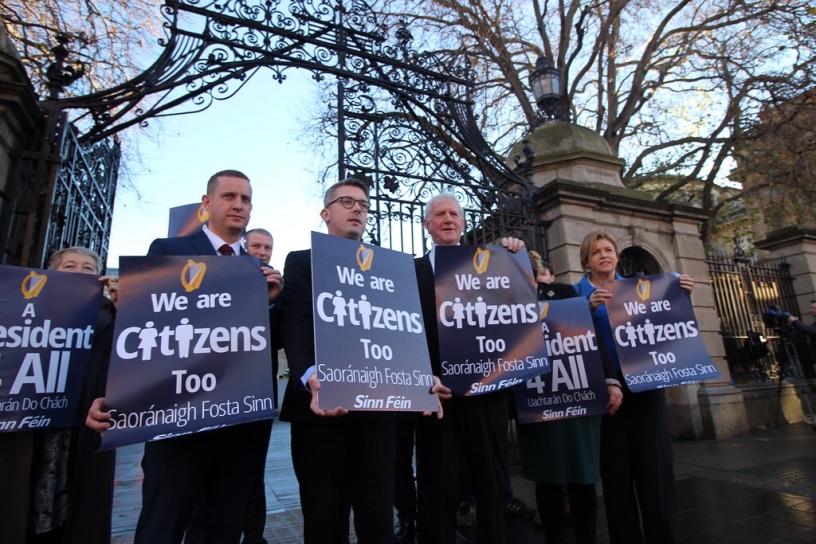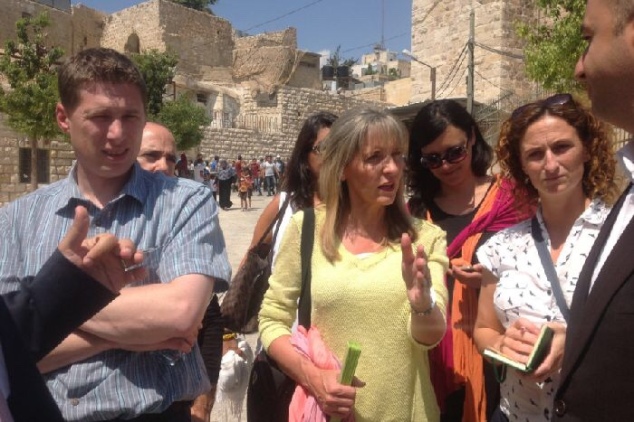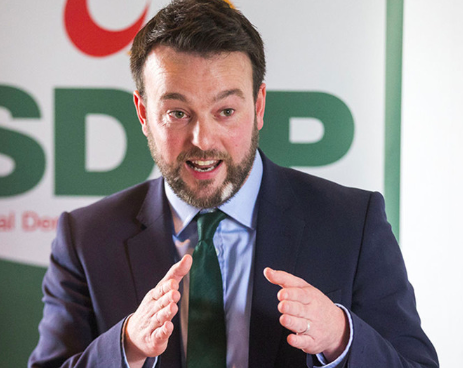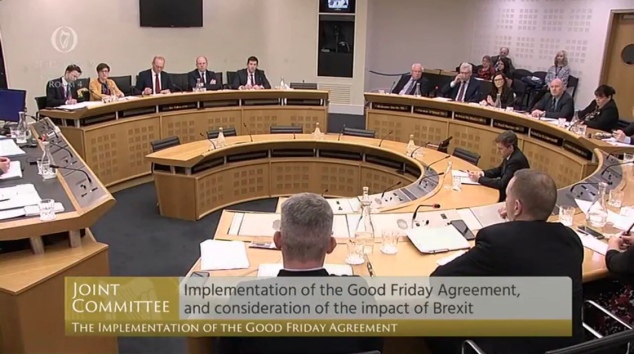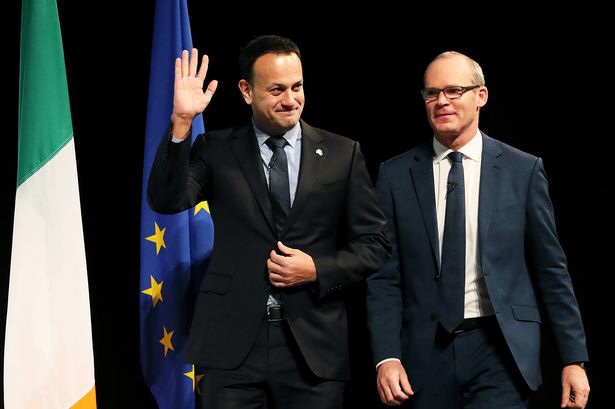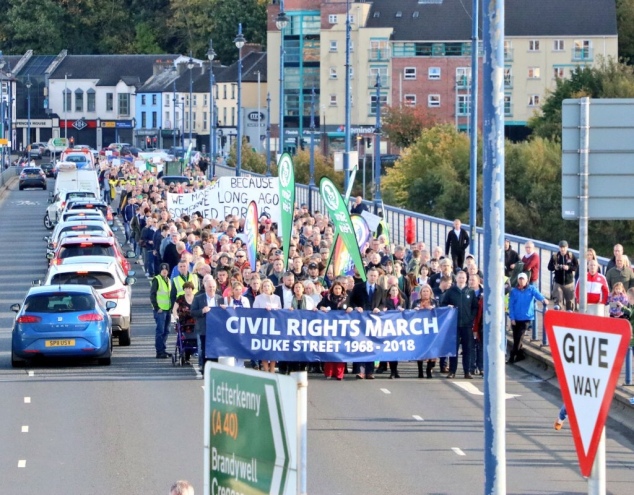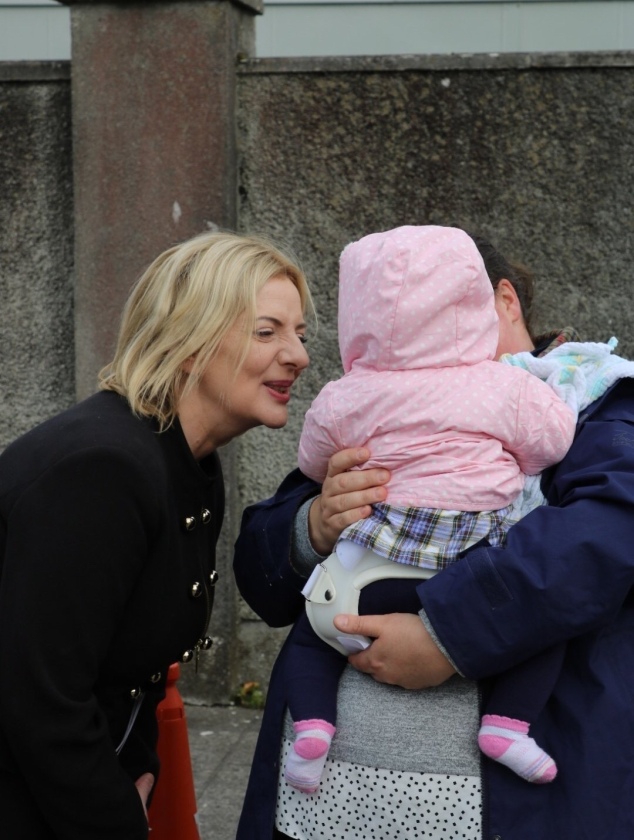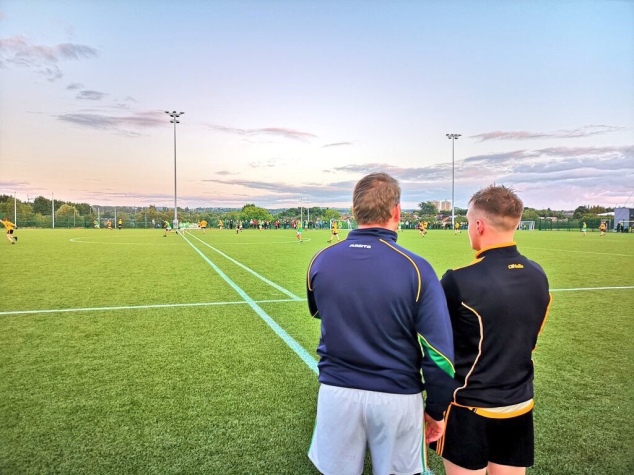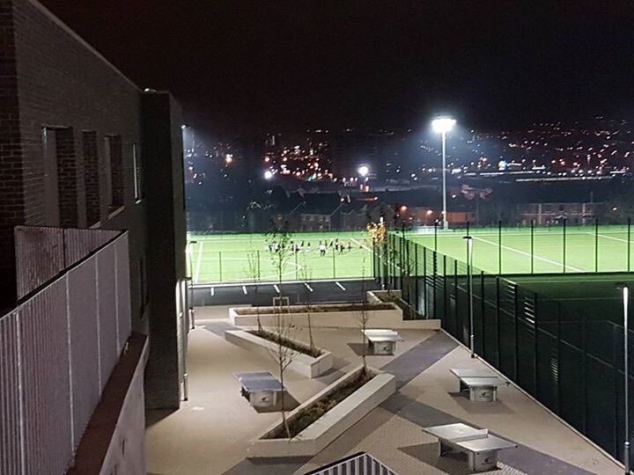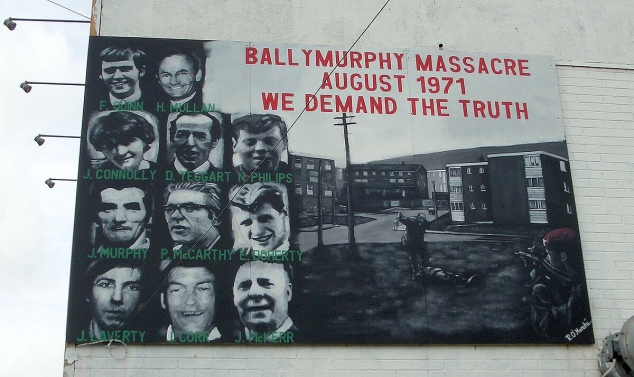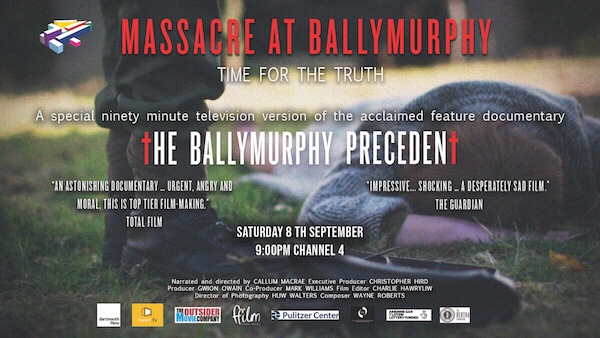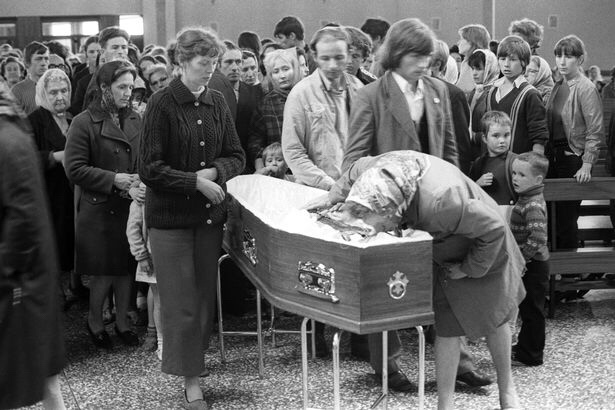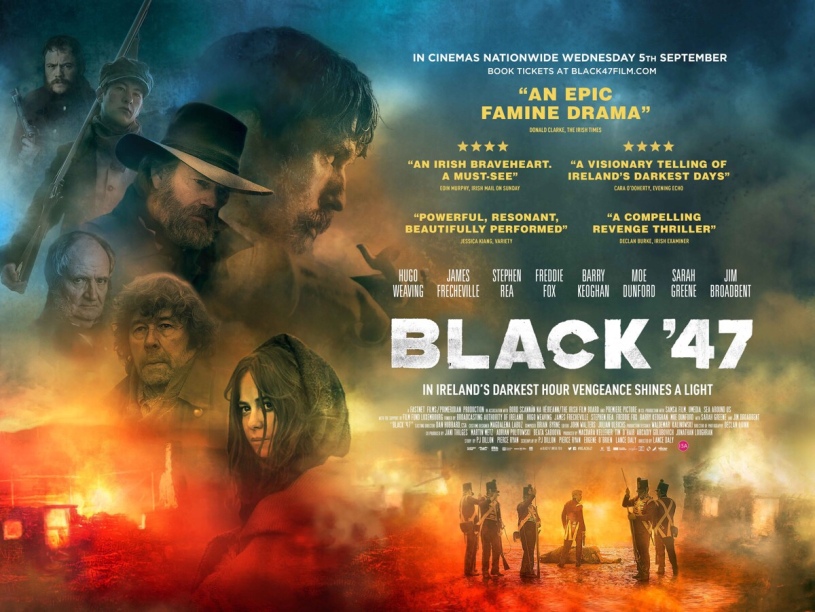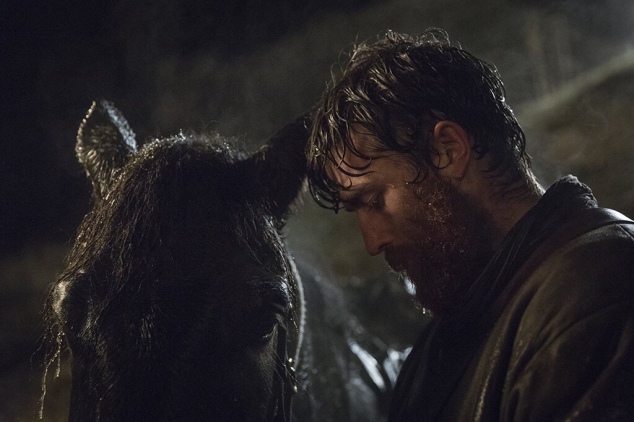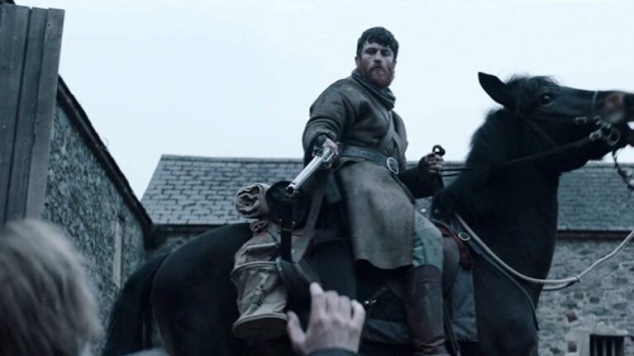This article first appeared in the Andersontown News 1/11/18
I was in London last week for the latest plenary of the “British-Irish Inter-parliamentary Assembly”.
This biannual gathering brings parliamentarians from the House of the Oireachtas and the northern Assembly together with their counterparts in the Welsh, Scottish and English Parliaments; members also come from Jersey, Guernsey and the Isle of Mann.

Given the climate we are in much focus turned to what would be said at this event, not least given the fact that we were to be addressed by Britain’s Secretary of State for the North Karen Bradley.
During her remarks Ms Bradley took the opportunity to remind us of the twentieth anniversary of the Good Friday Agreement and to laud it’s many achievements. Fair enough.
A packed press gallery heard speaker after speaker from Ireland flag up their concerns around Brexit.
I took the opportunity to remind Karen Bradley that while praising the GFA she is held to ransom by a party who opposed it at the time and remain opposed to it still. I reminded her that many aspects of that and other agreements remain unfulfilled by her government; a Bill of Rights, Acht na Gaeilge, access to legacy mechanisms.

I also stressed the point that the majority of voters in an area she, (even still) lamely professes to in some way represent, (yet clearly from her contribution at this event and many more) in no way understands. I reminded her that the majority of people in the North voted to remain inside the EU and are increasingly opposed to a Tory Brexit being forced upon us.
Her response gained much media coverage and on a personal level left me scratching my head.
Karen Bradley said that because “sixty percent of unionists voted to leave” that that meant to suggest a majority here actually voted to remain was in some way contrary to the spirit of the Good Friday Agreement.
The old DUP adage of “a majority of the majority” rang in my ears as I listened to her conclusion of this particular sentence, but even they had left such negative and inherently anti democratic rhetoric far behind. Had the Tories?
I asked Karen to cite her sources for this figure and her subsequent political assertion.
She didn’t bother. I don’t think the packed press gallery bothered to ask her either.
The following day I would again have the opportunity to question Ms Bradley when I paid a visit to 10 Downing Street for a reception marking the end of the BIPA Plenary.
On a personal level I was taken by the history of the street and the house, very conscious of it’s impact on Ireland and the many world figures of note and notoriety who passed through that famous door.
I thought back to the Sinn Féin delegation led by Michael Collins who signed the Treaty, which partitioned Ireland, led to Civil War and decades of armed conflict back at home.
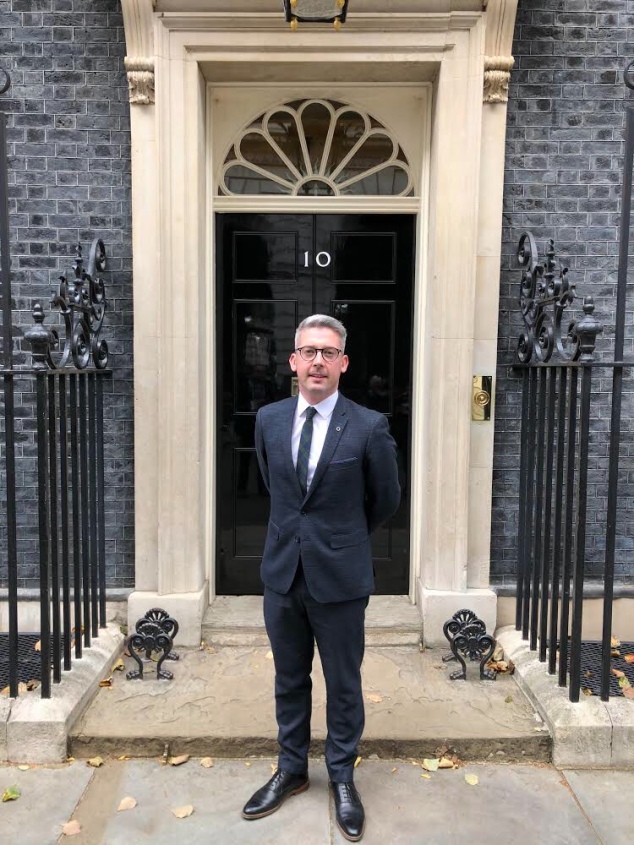
I thought of more recent times, to sitting on our living room floor in the Strand and watching over many years as Martin, Martin and Gerry, Ferris, Siobhán, Michelle, Lucilita, Richard all made their way through that door in challenging times, striving to advance negotiations, dialogue, peace and Republican politics.
I was conscious of their, of our and indeed Ireland’s collective journey.
I was very glad I would head through the same door for the first time with Bellaghy’s own Ian Milne MLA, a comrade of the legendary Francis Hughes, a former political prisoner and Blanketman, held captive with my late Uncle Seany in the Blocks.
Ian and Sean Crowe TD from Dublin help me round up the Republican membership of BIPA and the three of us understood fully the footsteps we followed in.

So with all this in mind, even though it was a diplomatic reception of which the assembled civil servants could be happy with, I took another opportunity while there to raise Ireland’s concerns with Karen Bradley.
While it was clear she wasn’t minded to continue our engagement from the previous day, luckily a strategically placed table meant she didn’t get the chance to avoid me.
I said to Ms Bradley what I expect a clear majority of people, Unionist, Republican and other, would expect me to say. Her attempts at subverting the democratic will of the people will be seen clearly for what they are, yet another cynical attempt to sustain their toxic, symbiotic link to the DUP.
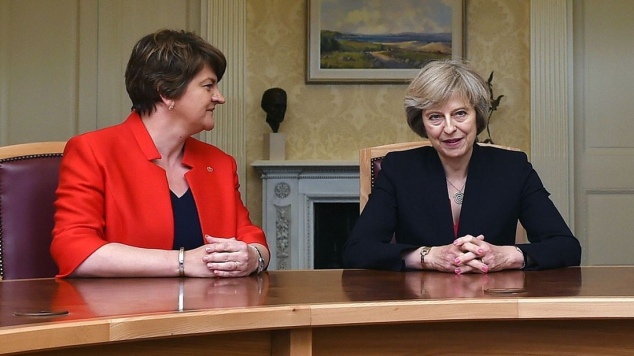
Democracy, Ireland and all of our people of no importance to them if Karen Bradley’s remarks are anything to go by.
I’m glad my visit to Downing Street afforded me the opportunity to make the case for Ireland.
I’m glad I made it there from the Strand.
Whether she got it or not there’s no doubting from our group, Karen Bradley heard the message.
BIPA meets in Dublin in the New Year. The message will be the same.



